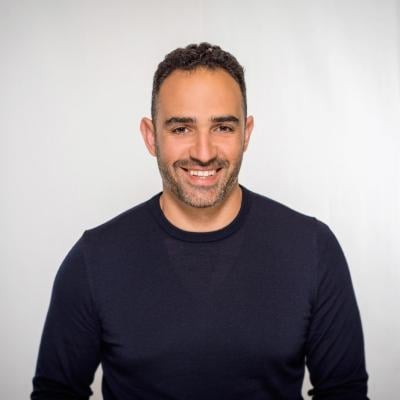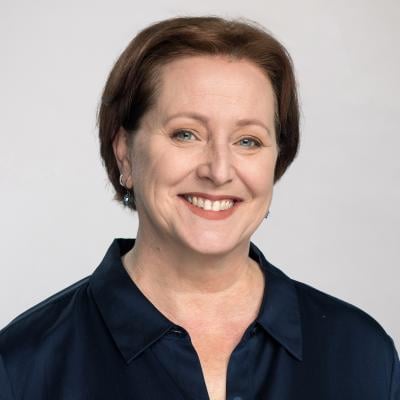Dispatch Bio has unveiled with $216 million and the lofty goal of creating a universal treatment for solid tumors using a new immunotherapy approach.
The biotech was formed around the concept of solving two obstacles in cancer care: developing a treatment that can differentiate cancer cells from healthy cells while also addressing resistance mechanisms.
Four scientists—CAR-T pioneer Carl June, M.D.; Chris Garcia, Ph.D.; Andy Minn, M.D., Ph.D.; and Kole Roybal, Ph.D.—put their heads together to brainstorm how to overcome these challenges, with their solution underpinning the launch of Dispatch.
Founded in 2022, the biotech is the result of a partnership between nonprofit Parker Institute for Cancer Immunotherapy (PICI) and the combined lab work from the four scientific cofounders, who developed a two-pronged treatment approach.
“It's a single product with two components,” Dispatch CEO Sabah Oney, Ph.D., told Fierce Biotech. “The first component is a viral vector.”
Dispatch’s platform, dubbed Flare, sends the virus to tag the cancer cells while also breaking down the tumor’s inhibitory environment.
“It's like spray painting cancer cells so they're now different from the healthy cells,” the CEO said.

Then the flare antigen is designed to direct the immune system to identify and clear cancer cells without destroying healthy tissue.
The second piece of the puzzle is a “powerful immunotherapy approach” designed to clear out the cancer and prevent it from coming back, Oney explained.
Dispatch’s first generation of products will use CAR-Ts as that immunotherapy, Chief Scientific Officer Barbra Sasu, Ph.D., told Fierce in a joint interview. She added that the approach works beyond CAR-Ts, with any targeted therapy possibly up for grabs.
The two-pronged approach has clearly impressed investors. Since 2022, Dispatch has raised $216 million in both seed and series A money.
The series A financing was led by founding investors Arch Venture Partners and PICI, with participating investors including Bristol Myers Squibb, the University of Pennsylvania, Stanford University and Alexandria Venture Investments, according to a July 22 release.
Dispatch CEO Oney, who is also a venture partner at Arch, said the fundraising environment was “very difficult.”
“It was, for me, the hardest fundraising environment I've been part of—and I raised in 2008, 2009,” he said, referring to the period known as the Great Recession. “With that said, there's still a window for companies like us, which are preclinical platform high SaaS companies, to do fundraising.”
But the bearish conditions come with a bright side.
“Some of the best part[s] of companies were built during financial crisis before, and there's a reason for that,” the CEO said. “It really allows you to focus.”
And Dispatch is laser-focused on channeling the new funds to move the company’s first program into the clinic next year.

The 60-person biotech is currently finalizing investigational new drug (IND)-enabling studies for the candidate, Oney said. The company is also establishing its manufacturing presence with an undisclosed partner.
While Oney didn’t reveal what indication the first program will be in, he said Dispatch is starting with a homogeneous patient population to prove the strategy works. The biotech is also prioritizing patients who need treatment the most.
“The potential of this platform is really broad: It's all epithelial cancers,” Oney explained. “But initially, we're starting where the unmet medical need is highest. So, with this indication that we're going to start, there's really nothing after the first line [of treatment].”
Part of the reasoning behind choosing a CAR-T as the immunotherapy agent is that there’s already a regulatory precedent set for the drug class, Sasu said.
“CAR-Ts, no matter what you do to them, just need a little help in the solitary microenvironment,” explained Sasu, who previously served as cell therapy company Allogene’s chief scientific officer and held roles at Pfizer and Amgen before that.
“We're not looking for small effects. We're looking for large effects,” the scientific leader continued. “We needed a new and sophisticated biology to get us there. CAR-Ts alone in solid tumors are running into problems. We know we need something else.”
Ultimately, the execs believe Dispatch’s strategy could work across all solid tumors, which account for about 90% of adult cancer cases worldwide.
And, while some may say using CAR-T could be risky, Oney disagrees.
“What's risky is trying the same thing over and over again that didn't work for some incremental improvement,” he said. “In our minds, it's less risky to do something that gets to cures in a different cancer.”